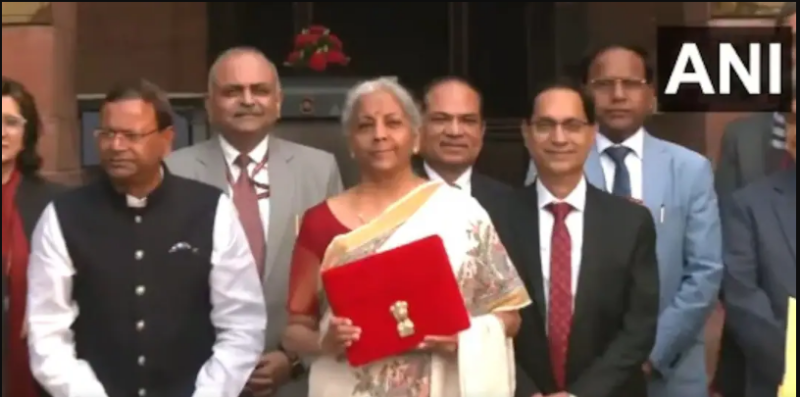Union Budget 2025 Updates: Finance Minister Nirmala Sitharaman will present a record eighth consecutive budget, which is expected to contain measures that ease the burden on the middle class struggling with high prices and stagnant wage growth while being fiscally prudent.
As per the Economic Survey tabled on Friday, the Indian economy is expected to grow at 6.3-6.8 percent in 2025-26. While India will need structural reforms and deregulation to reinforce medium-term growth potential, investment activity is expected to pick up.
Ahead of the Budget, President Droupadi Murmu addressed a joint sitting of Parliament where she said the government has worked with strong determination to lift the economy out of the state of “policy paralysis” despite global concerns such as aftermath of COVID-19 pandemic and war-related uncertainties.
During the Budget Session, sixteen bills, including the Finance Bill 2025, amendments to the Waqf and Banking Regulations Act, and the merging of the Indian Railways and Indian Railways Board Acts, will be tabled.
Here are the Updates of Union Budget 2025:
What Changes Do Economists Suggest For Salaried Taxpayers
Every Budget season, the most-asked question remains the same – does it have anything for the salaried class? With Finance Minister Nirmala Sitharaman set to present Budget 2025-26 on February 1, the salaried class is again looking out if the government has any plans to reduce their financial burden.
Economists have suggested that the government this time offer a higher tax exemption limit and an increased standard deduction under the new tax regime, which would benefit a lot of taxpayers. In the last Budget, the standard deduction was increased to Rs 75,000 from Rs 50,000 while the exemption limit stands at Rs 3 lakh under the new regime.
5 Union Budgets That Left A Lasting Impact On Indian Economy
Introduction of wealth tax in the 1957-58 Budget
The 1957-58 Budget, presented by Finance Minister TT Krishnamachari, introduced a landmark reform – the wealth tax. For the first time, individuals were taxed on the value of their personal assets. The shift marked a new approach to taxation, aimed at reducing economic inequality by taxing the wealthy. The wealth tax remained in place for decades before it was scrapped in 2015.
The ‘Black Budget’ of 1973-74
The 1973-74 Budget, presented by Yashwantrao B Chavan, is remembered as the “Black Budget” for its staggering fiscal deficit of Rs 550 crore. India was grappling with serious economic challenges, including rising oil prices and food shortages. The Budget laid bare the country’s economic difficulties, and it was a precursor to the political and economic turbulence that followed, including the declaration of the Emergency in 1975.
Core Team Behind Budget 2025-26
Nirmala Sitharaman has been supported by a skilled team of experts, each playing a crucial role in shaping the economic roadmap.
Here are the key figures behind the Budget-making process:
- Anantha Nageswaran, Chief Economic Adviser
- Manoj Govil, Expenditure Secretary
- Ajay Seth, Economic Affairs Secretary
- Tuhin Kanta Pandey, Finance and Revenue Secretary
- Arunish Chawla, DIPAM Secretary
- M Nagaraju, Financial Services Secretary










